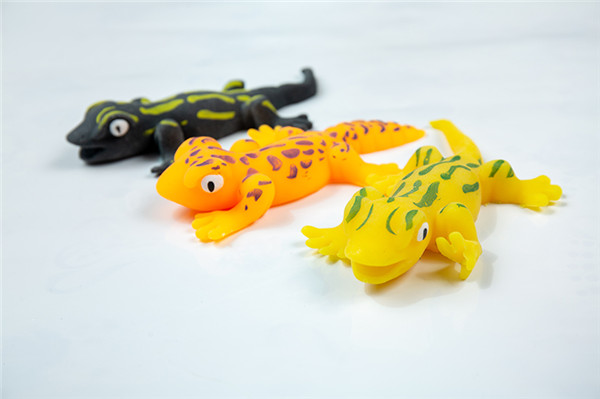TPR materials for injection molded toys, Dechuang chemical
Contact 138 2720 9711
Product details
The TPE raw material granule produced by Dongguan Dechuang Chemical Co. , Ltd. is environment-friendly, non-toxic and food grade. The TPE raw material granule produced by our company has a wide range of applications and can recommend different products according to different product results, hardness 20-100A (can be adjusted according to customer requirements). Dechuang chemical company sanctions to sample customization, for your tailor-made products belong to your exclusive, but also to provide free technical support. All staff of Dechuang chemical are looking forward to your visit! A toy is an object for playing with. You can also learn a little knowledge from playing with a toy. However, because some toys have unsafe factors, many countries in the world have developed toy safety standards. Toys shall be inspected and marked if they meet the standards, otherwise they shall not be allowed to be produced, sold or imported. Most countries adopt the international toy safety standards formulated by the International Toy Industry Committee. Due to the increasingly strict requirements of environmental protection in the toy industry, in addition to the usual Rohs and EN71 environmental protection standards, SVHC under REACH has increased to as many as 38 kinds of substances in recent years. Because traditional toys mostly use PVC soft glue as raw material, and PVC soft glue in heavy metal content detection, phthalate toxic substances detection, SVHC is highly concerned about substances detection project often difficult to achieve the detection standard of Rohs, REACH, EN71. TPR is a new type of environment-friendly material instead of PVC. Dongguan Juye Plastic Technology Co. , Ltd. and into the development of many years of research and development, and finally developed a dedicated children's toys tpetpr food-grade. TPR soft adhesive is a kind of Thermoplastic elastomer, which is a kind of composite functional material modified by SBS and SEBS. TPR soft adhesive for toy production and processing, oil-jet screen printing, its common hardness range is Shore 30 ~ 90A. Materials can be natural color, translucent and transparent color, have excellent oil spray and screen printing characteristics. Five characteristics of TPR: 1. Excellent color matching performance. Soft rubber toy products are bright-coloured and various colors, for TPR materials have higher requirements for color matching. A qualified TPR brand, should have good color pink agent diffusivity and good color can be better coloring, as bright as possible color, color uniform color matching effect! 2. Good spray-paint screen printing performance most toy products have spray-paint screen printing requirements. In order to achieve excellent results (paint spray up do not fall off) , TPR rubber and ink paint matching is very important, should be based on the TPR characteristics of the choice of suitable paint inks. 3. Soft toys cracking resistance for some soft toys hardness is very soft, should pay attention to the selection of appropriate TPR materials, products to prevent cracking phenomenon after processing. In addition through the molding process optimization, reduce the stress shrinkage caused by cracking! 4. Although most of the environmental performance of TPR materials are in line with Rohs and EN71-3 testing standards, but different countries or regions for toy products testing standards or differences. Some Polycyclic aromatic hydrocarbon do not contain PAHs, some of the requirements do not include SVHC substances of high concern under REACH, such as nonylphenol. This requires mixing TPR compound, fully taking into account the environmental requirements in this regard! 5. Other requirements some toy products for tensile and tear resistance requirements, some toy products are good requirements for resilience and so on. In a word, the most suitable TPR materials should be provided according to the customer's specific requirements. Regarding the hardness of materials, TPR can provide a range of 0-100A hardness for materials to choose from. As for the processing of TPR, injection molding and extrusion are still the main methods at present. The special TPR materials can be blown molding.




